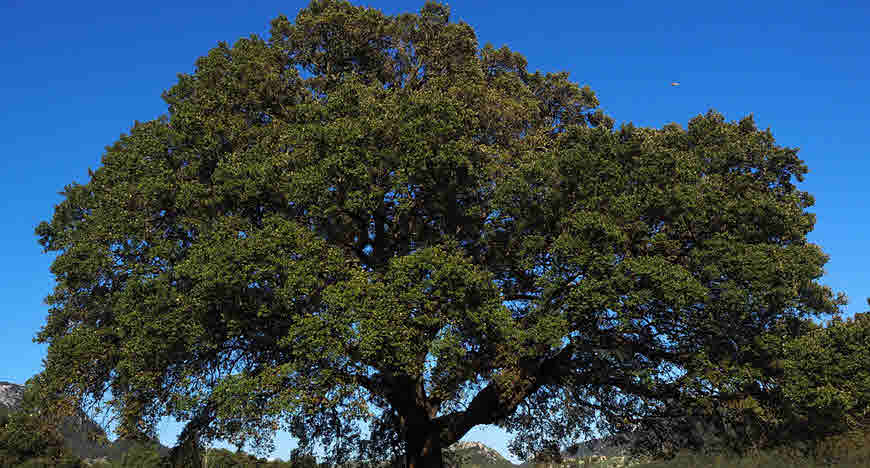Camphor is a large evergreen tree native to Eastern Asia (China, Taiwan, Korea). It is also grown in several other countries including India at Dehradun, Saharanpur, Calcutta, Nilgiris and Mysore. The main product obtained from this tree is camphor or kapoor. All parts of camphor tree on distillation gives a semisolid oil from which camphor can be separated by a mechanical process.

Overview
Latin name: Cinnamomum camphora (L.) Nees & Eberm., Camphora camphora (L.) H. Karst.
Family: Family: Lauraceae
Vernacular names
Sanskrit, Hindi Bengali: Karpoor, Kapur, English: Camphor, Unani: Kafoor
The Camphor tree
The tree is large with height of about 20 m (65 feet). The leaves are simple, alternate;blades entire but may have wavy margins, mostly ovate, 4-10 cm (1.5-4 in) long and 2-5 cm (0.8-2 in) broad, glossy green above, duller green below, with impressed glands below at major veins. Flowers are small, greenish white to cream, in loose panicles on branchlets of season;6 petaloid parts;12 stamen parts, usually 5-9 fertile stamens plus smaller sterile staminodes. The raw fruits are dark green, ovoid, dry, globose, and about 0.3 inch in diameter. They turn black on ripening. Every part of the tree gives aroma of camphor due to the presence of oil which is formed in the oil cells distributed in all parts of the plant. These cells begin to form early in the growth organs, and are filled with yellow oil from which camphor is slowly deposited. The formation of camphor is brought about through the agency of an enzyme present in the growing pans of the tree particularly in the tissue within the cambium region.
Ayurvedic properties and action of camphor
- Rasa: Tikta, Katu, Madhur;
- Guna: laghu, teekshna;
- Veerya: sheeta;
- Vipak: katu;
- Camphor is diaphoretic (induces perspiration), stimulant, antiseptic, antispasmodic, internally expectorant, sedative, internally carminative, and externally anodyne (painkilling).
Medicinal properties and uses
- Camphor is used both internally and externally.
- Camphor oral intake has carminative, expectorant, and reflex stimulating effect on heart, circulation and respiration.
- Camphor is given internally in doses of 0.2 grams, for treating hysteria, nervousness and diarrhea. Camphor is toxic at 2-20 grams.
- External application of camphor has rubefacient (causing dilation of the capillaries and an increase in blood circulation), anodyne/pain killing and mild analgesic properties.
- Camphor is applied externally on catarrhal diseases (inflammation of a mucous membrane of respiratory tract with secretion) of the respiratory tract and muscular rheumatism.
- Camphor is externally used in the treatment of muscular strains and sprains, rheumatic conditions, joint pain, and inflammations.